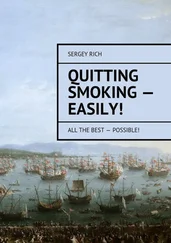Life and each part of Life is infinite,
Infinitely divisible, traversable,
And visible! seek out the motives there—”
“O seek, he means the depths of the Past from which
The soul’s moves rise as grasses from the earth—”
~
And then one day Hershey played by the door of the apartment house, when three of the other boys, always friends before now, members of the kindergarten class,
Took up the janitor’s hose, coiled serpentine on the sidewalk, and suddenly turned it on Hershey, crying,
You are a Jew! a Jew! Hershey ran away all wet from the baptismal flood of the communal mind,
He ran away to his mother, asking her what was wrong, what was being a Jew?
But she did not answer, he did not know so well, wetly, and sensuously, until far later years.
She took his hand and rang the doorbell where one of his opponents lived,
And protested to his mother in a loud self-righteous tone, which made Hershey ashamed, although he hardly knew why,
But knew that more than he understood defended and offended him,
And knew with passion that laughter thrown at him by boys pitted against him was one of the worst pains, and that other boys turning on him
Stripped him, even if he ran to his mother, stripped him and left him alone, naked, wet and ashamed.
And then one day when his father gave him a fountain pen, and he lost it the very next day,
Playing in the empty lot behind the apartment house. He went and told his mother and begged her then, securing her promise,
Not to tell his father. But when in the evening his father came to see him go to bed, his father asked him and asking smiled,
Where his fountain pen was? When Hershey began to lie, Jack Green smiled still more broadly, the lying child was a joke, or the lying child was himself,
And said to the poor pajama’d boy that he knew he had lost his fountain pen, and gave him another one, his own, a better one, the best, and for some time admired by him,
And then Hershey knew such joy as Adam might have known, had his father brought him back to a greater Eden,
Making his loss his gain. But in the midst of his joy, Hershey saw that his mother had betrayed him,
He saw there was a communication between his parents which would always betray him.
Because he was a child.
“Poor boy, how education comes to you!
Learning to be a Jew, attacked because
A Jew, born to the long habit of pain
And alienation, of the people chosen for pain….”
“Attacked for the first time because you are
A kind, a class! as you were not yourself,
The pain of the sole psyche insufficient,
The naked surd’s self-torture not enough!”
“Thus to begin, in sudden dripping shock,
Abstractions’ mastery, as if a teacher
Taught species, genus, higher genera,
Slapping his student’s face as if to say
This is what faceness is, learn it through pain:
How better than in shock to learn of terms?”
Hershey felt now as when his hands and arms
Fell asleep, powerless, too weak in strength
To hold a cigarette, or hold a pin….
“Now of betrayal, now these far-off singers
Will speak of parents’ and betrayals’ first—”
Hershey prepared himself, speaking these words,
Once more in mimicry of what he heard—
“The loss of faith’s virginity, the sense
That anyone might lie, as when the earth’s
Flatness turned out to be a curving lie,
Falseness objective in the turning world
— The sense that always underneath the face
Many a motive hid the truth, prepared
Illusions, made the mirage, deceived!”
“Life is a lie! Life is a long long lie,”
Another far voice cried, “Death is a news
Life painted differently! What have we now
But this eternal knowledge and regret,
Not an oblivion… at best, a sweet drugged sleep
When we are lucky! the sleep of hospitals—
True, one gets used to pain as one gets used
To living near a waterfall or trains,
But I cannot believe I will become
Used to regret, return, the infinite
Apocalypse of all that might have been,
Millions of instances shown in these lives,
Every future untrue and every hope,
Even in satisfaction, vain and false,
Since no success is terminus, serene….”
“The hanged man like a sack upon a tree
Cannot believe the freedom of the will—”
~
“Happy as some in May, in the May morning,
When sunlight stamps gold coins on the blazed gaze,
And on the river does the diamond-dance,
— These sensuous skins, alas, obsess the life—”
“O Sun of Nature! source of all the forces,
All blooms, all snakes, and Botticelli’s views
Of both of these, and Nature as a dance:
(Light is the heroine of every picture—)”
“O what a glory has the turning world!
And that is why some say that God himself
Took on this flesh:
to be God was not enough
To feel in blues and greens of natural life
Immediacies they have, like any kiss—”
“I hardly know just what it means to me,
But when I hear the word, my soul soars,
Strong as a gull over the evil shores
Of this unending terrifying night—”
“Hear how he speaks like us, now more and more—”
“Again, go back, see how Christ’s story lives,
Born in the winter, risen from the year
As once in Palestine—
“If you were wise!
Like the three Magi all your attitudes,
Expecting any kind of Paradise,
In any poverty or paradox!”
“See how the Bible rules the consciousness
Of the West for two thousand years:
O, what a book!”
“Bible and Ovid too! who brings to us
Leda, Medea, Psyche, she who wished
To look at Love’s forbidden hidden face,
Long before Sigmund Freud looked down on it,
And saw the serpent climbing up the stairs—”
“Psyche arrived after the birth of Christ!”
“The Sistine Chapel is the Western mind!”
“The snow: obsessed with it! This we must know
And understand; his love of it unceasing
In the deep mind beneath the conscious mind
Whence many motives rise up to command!”
“The gift! the bicycle! the gift of motion,
As he had loved the street-car years ago,
Since motion, as the Stagirite once said,
Is being’s deepest wish, most general form….”
“Gift from the doubted wished-for nameless Ahhhhhhhh
— Amid snatches of sleep, dreaming of snow!”
~
“Manic-depressive Lincoln, national hero!
How just that this great nation, being conceived
In liberty by fugitives should find
— Strange ways and plays of monstrous History—
This Hamlet-type to be the President—”
“This failure, this unwilling bridegroom,
This tricky lawyer full of black despair—”
“He grew a beard, becoming President,
And took a shawl as if he guessed his rôle,
Though with the beard he fled cartoonists’ blacks,
And many laughed and were contemptuous,
And some for four years spoke of killing him—”
“He was a politician — of the heart!—
He lived from hand to mouth in moral things!
He understood quite well Grant’s drunken-ness!
It was for him, before Election Day,
That at Cold Harbor Grant threw lives away
In hopeless frontal attack against Lee’s breastworks!”
“O how he was the Hamlet-man, and this,
After a life of failure made him right,
After he ran away on his wedding day,
Writing a coward’s letter to his bride—”
“How with his very failure, he out-tricked
The florid Douglas and the abstract Davis,
Читать дальше












